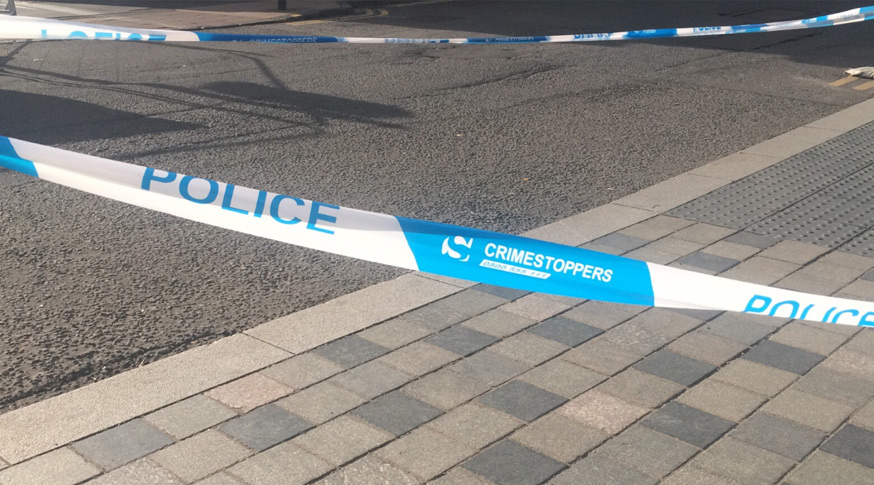
Channel 4
Dispatches investigates ‘Britain’s Unsolved Crimewave’
Exclusive data analysis that Met Police have failed to identify a single suspect for thefts from a person, robberies, burglaries, bike theft and vehicle crime in more than 160 neighbourhoods for all of the last three years.
The Metropolitan Police has been criticised by the police watchdog for failing to catch and deter criminals following a Channel 4 Dispatches investigation into unsolved neighbourhood crime. Andy Cooke, His Majesty’s Chief Inspector of Constabulary responded to research that found 167 areas across England and Wales where the police had not identified a single suspect for neighbourhood crimes between 2021 and 2023. All but one of them was in the Met force area.
Cooke told Dispatches: “The Metropolitan Police, over the last couple of years, have seen unprecedented demand, there is no doubt about that… However, too often the police aren’t getting the basics right…Seeing so many neighbourhoods that have got zero percent detection rates for some of these crimes, it’s not acceptable. If the chances of being caught are so low, that is not a deterrent.”
The exclusive analysis of crime records for England and Wales was carried out by Crest Advisory, a consultancy specialising in analysing police data, and looked at thefts from a person, robberies, burglaries, bike theft and vehicle crime where no suspect was identified in the last three years, mapping the clusters of unsolved crime to street level for the first time. Only areas with at least 50 unsolved neighbourhood crimes were included in the analysis.
A Home Office spokesperson told Dispatches:
“As part of our mission to take back our streets we will restore neighbourhood policing in local communities by delivering 13,000 neighbourhood police and community support officers.
“The Home Office will take a more active role to improve standards in policing so that charge rates increase, more crimes are solved and justice is delivered for victims rebuilding confidence and trust in policing.”
In one small area around Oxford Circus and Regent Street, exclusive data analysis commissioned by Dispatches revealed that over the last three years, there were more than 10,000 thefts from a person with more than 99% of them going unsolved. The Dispatches investigation reveals what an opportunity unsolved crime hotspots like this offer to criminals. “I don’t give a f*** about what the police are doing, innit. I don’t care. I ain’t been nicked for it, yeah? And I ain’t going to get nicked. That’s how I look at it,” a phone snatcher told Dispatches.
The criminal told the programme that he believed the phones he sold were sent abroad. It comes amid viral stories online that describe stolen phones being tracked to China. One Londoner, Imran Kanji described his own experience to the programme: “The police said that they weren’t able to progress because they didn’t have any leads, there were no suspects and there was no CCTV that they could look at. So they closed the case and about two weeks later, my phone pings again and it’s in China.”
The Apple iPhone still had its tracking enabled and it showed up in Shenzhen in an area where electronic goods are traded. “It definitely made me feel it was part of a bigger operation,” said Kanji.
Dispatches tracked down two middlemen inside an international criminal network to reveal the trade of phones snatched on our streets. They told Dispatches reporter, Isobel Yeung about buying stolen phones in the UK and selling them in bulk to businesses in Shenzhen, China. The businesses profit from breaking the phones down for parts or unlocking them for resale, they told the programme.
An insider from the network in the UK described to Yeung the money he has made by buying and reselling around a hundred stolen phones a month: “Cheap phones each, I can make £100 to £150. If a good phone like iPhone 15 pro max, I can earn £250. Maybe £12,000 to £15,000 per month”
A Met Police spokesperson told Dispatches:
“We understand the impact that robbery can have on victims…. officers are targeting resources to hotspot areas, with increased patrols and plain clothes officers which deter criminals and make officers more visibly available. We encourage people to report … whenever they have been a victim of robbery or theft.”
Exclusive data analysis by Crest Advisory, commissioned by Channel 4 revealed unsolved neighbourhood crime hotspots across the country. These are crimes where the police close the case with no suspect ever being identified.
The analysis shows one neighbourhood in Thurrock to the west of Lakeside had the most unsolved vehicle crime in the analysis (based on data from 35 out of 43 regional forces in England and Wales). There were 1017 reported offences in this area in the last 3 years and 93% of vehicle crimes there went unsolved by Essex police.
Essex Police told the programme that vehicle crime is a priority and in Thurrock there’s since been a fall in such crimes in the last year and they’re now utilising specialist officers to deal with vehicle crime as they already do with organised crime. The programme also found tens of thousands of burglaries across unsolved neighbourhood crime hotspots around the country. A small area of suburban streets in Rothwell, outside Leeds stood out. Over the last three years, there were 56 recorded burglaries in residential streets around Wood Lane in the area.
Every one of these cases went unsolved by West Yorkshire Police. It means there was either no investigation or no suspect was identified. Dispatches put this to West Yorkshire Police, who said they recognise the impact burglaries have on people and have made significant investment in projects that have brought down burglary levels and are committed to attending all home burglaries.
Dispatches used the exclusive analysis to find the places where there were large amounts of unsolved neighbourhood crime and reveal how brazen criminals have become. For bike theft, there are hotspots across Cambridge but the team identified a particular 250-metre area around Cambridge train station where over 300 bike thefts had been left unsolved over the last three years.
After locking a bike up in the unsolved crime hotspot as bait for the thieves, Dispatches trained their cameras on the location. On the first day, would-be thieves tested the lock in front of passers-by. On the second day, a small group appeared and ripped the bike from the post it was attached to. What the criminals did not know was that they were being filmed and the bike had been fitted with a hidden tracker.
The team followed the bike as it moved around Cambridge and then went up the M11. They tracked it to a house in Saffron Walden, Essex. There it was put up for sale online just 39 hours after being stolen.
Dispatches reporter, Isobel Yeung arranged to buy the bike and secretly recorded the meeting with the seller. He initially gave her a fake backstory: “Lovely bike, basically brand new. My mum only used it, I think twice for a bike ride,” he said. When Yeung revealed herself to be a journalist who had filmed the theft, the seller admitted that he had bought the bike in Cambridge and gave it back to her. He denied knowing it was stolen.
Weeks later, Dispatches found footage of the same bike seller posted on a local social media page dedicated to exposing bike thieves in Cambridge. In it, he was filmed by a concerned Cambridge resident being accused of handling another stolen bike. The evidence reveals how brazen thieves in unsolved crime hotspots have become and suggests an efficient network has sprung up where bikes are stolen and quickly sold on.
Cambridgeshire Constabulary told the programme:
“We recognise the harm that is caused when a cycle is stolen and we’re working hard to reduce cycle crime and bring offenders to justice…In October 2020 a multi-agency … group was set up… [who] have implemented several initiatives to tackle cycle crime…primarily in …the area having the highest volume of thefts”
Britain’s Unsolved Crimewave: Dispatches, tonight, Tuesday 16 July 10pm, Channel 4
Statistics credit: Crest Advisory / Britain’s Unsolved Crimewave: Dispatches










